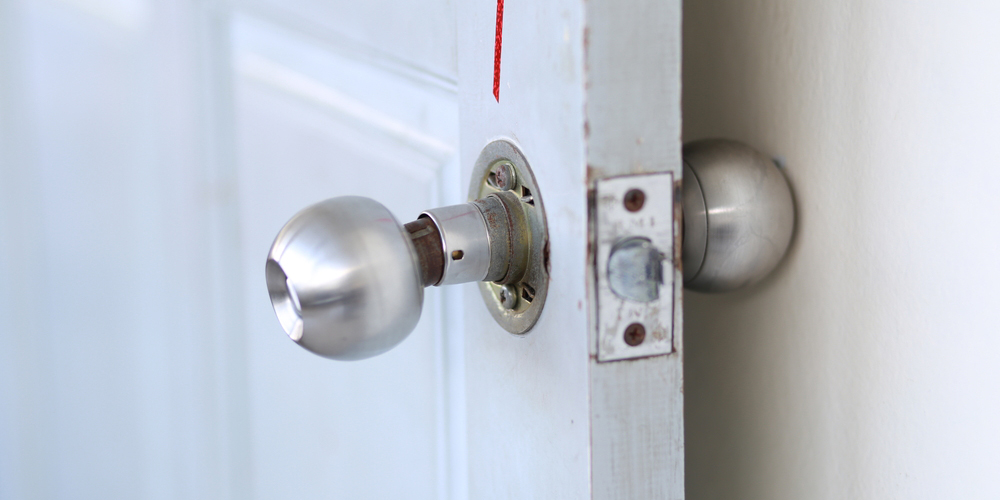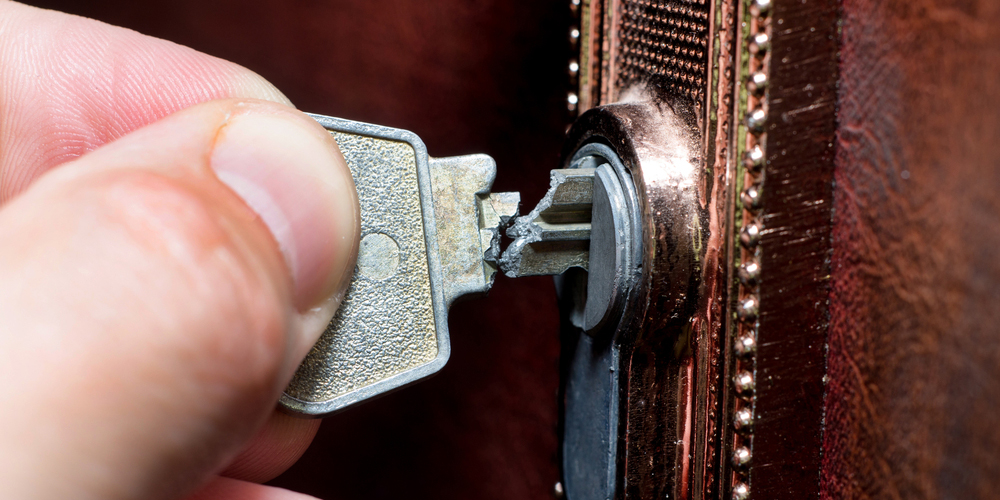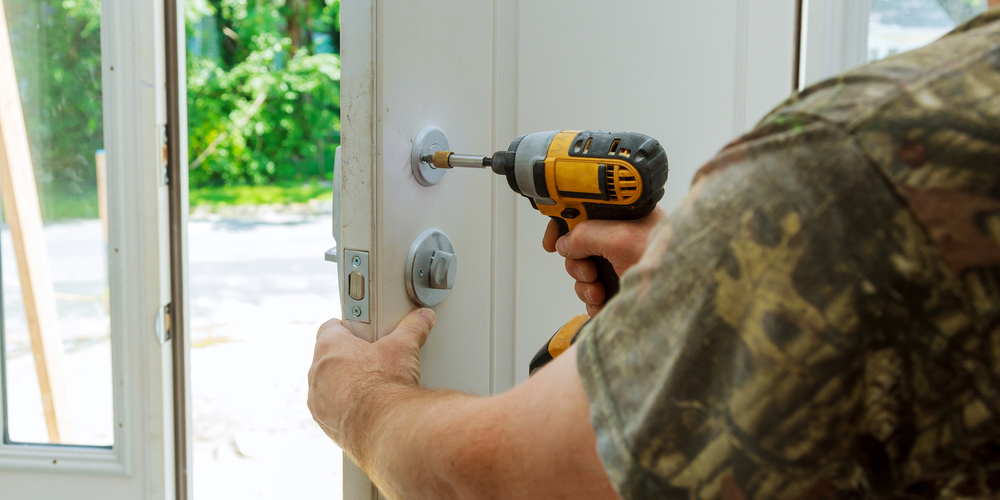Lock Blog
A resource for consumers, locksmiths, and security professionals
A resource for consumers, locksmiths, and security professionals

Door lock problems creep up from time to time, and it is something that every property owner has to deal with. Most homeowners and commercial property owners will tell you that they have encountered door lock problems at one point or another. The manner in which you treat door lock problems that crop up will determine the extent to which these problems ultimately impact your security. Unfortunately, most people don’t call a residential locksmith or commercial locksmith until it’s too late.
There are some door lock problems that you cannot afford to ignore. I say this because door lock problems tend to grow into something more if they are not appropriately addressed. In some cases, door lock problems will leave your security vulnerable and open to attack. Before we begin, allow me to reiterate. Do not ignore any of the door lock problems that will be discussed below.
Failing to pay attention to the status of your door locks can have some very serious consequences. The reader has a special place in my heart, so I want to help you avoid any unnecessary costs. Here are the things you should be on the lookout for:
Door locks have a lot of moving parts, so it goes without saying that there are several different components holding any given lock body together. Each of these parts is integral to ensuring that the lock works smoothly. If one (or several) of these components start to fall apart, the lock will not work in the right way.
How do door lock parts become loose and fall apart? The answer is rather simple and straightforward. Most door lock parts loosen up with time and after extended periods of use. This is especially true for locks that are used on exterior doors that serve as primary ingress and egress points.
As far as door lock problems go, loose door locks might not sound like the most frightening thing. However, appearances can be deceiving. There are many homeowners and property owners who have had the same thought cross their mind. That is until they were faced with a house lockout or an office lockout because they were incapable of opening a door with a loose lock. I will play the role of devil’s advocate and say that being locked out of your house is definitely not as bad as being the victim of a home break-in.
58.3% of home break-ins are forcible entry, and if your door locks are loose, it becomes much easier for burglars to exploit your door lock problems. Furthermore, having a loose door lock in place can potentially be a fire hazard when it is being used as a fire door lock. Some fire door locks make use of active latch bolts that help keep fires contained. If your fire door locks are loose and worn down, fires will spread much faster.
It is very easy to spot door lock problems that result from loose door locks. You will often notice that something is wrong with your lock while you are using it. Loose door lock problems plague both the interior and exterior sections of the lock. It is often the case that the screws which fasten the various parts of the lock together are coming undone over time, or that they may be worn down and broken.
If this goes unchecked, it will be very easy for someone to dislodge your lock and gain access to your home. Another common reason for loose door locks is that the internal components are not connecting the way they should and this results in a loose door lock, door handle or door knob. Some of the components in question are the set screw, the fastener and also the spindle that connects both halves of your doorknob, door lock or door handle.
Fixing some of these door lock problems can be relatively straightforward and easy affairs if you know what you are looking for and how to approach the situation. However, you should be aware that you will require the expertise of a residential locksmith or a commercial locksmith if the door lock problems are more complicated than they seem:
Misaligned locks are often used interchangeably with misaligned strike plates. This is because they usually result in the same door lock problems. I will be honest and say that I started with the simplest door lock problem, so from here on out it gets increasingly difficult. I’m only half kidding, but please do not let my light tone fool you. These are serious door lock problems that should be addressed quickly. Misaligned locks or misaligned strike plates are very easy to spot.
As the name suggests, a misaligned lock means that key parts of the locking mechanism are not lined up in a way that facilitates the doors core functions. In most cases, it means that the latch or locking bolt are not lining up with the door locks strike plate. A strike plate is usually affixed to the door jamb and facilitates the extension of the bolt or latch.
Misaligned deadbolts and latches are common door lock problems. They are often the result of door locks that were not properly installed, or doors and door frames that are warping due to climate changes. The danger here is easy to spot. If your door lock is misaligned, it becomes difficult to operate the door normally. This means that it may not close and lock the way it should, which potentially leaves your home or office exposed.
In addition to this, if the misalignment is not tackled in an expedient manner, your door lock problems will compound and get worse. Misaligned door locks can lead to broken door locks or broken doors. Since the locking mechanism is not lined up with the strike plate, you run the risk of subjecting your locking bolt or latch to unnecessary pressure whenever you try to close the door. Eventually, this action can damage your door lock bolt. A damaged locking mechanism (that could have been avoided) will not lead to higher costs and lower security.
Door lock problems like misaligned locks are easy to spot and easy to fix, however, you will have to troubleshoot a few things to make sure that you are implementing the right solutions. Most of the simple solutions for broken locks can be carried out with some DIY tools. However, if you are not familiar with these tools and the way they work, do not attempt to fix this on your own. You will end up causing more harm than good, and you will still have to pay a locksmith to rectify your damage.

Breaking a key in a lock can be one of the more devastating door lock problems, and I say this from a place of experience. If you have never had to deal with such a thing, then you’re in luck. The reason why this becomes such a challenging problem to deal with is that a broken key in a lock affects other facets that you will now have to account for. For instance, your broken key and the process of extracting said broken key from the lock’s keyway.
If you have never had to deal with a key broken key in a lock, then I truly envy you. For those of you who have experienced this (or are currently experiencing this), I empathize with you and I understand. You will have to deal with potentially being locked out of your home or office, having a broken key, and maybe even having a door lock with broken internal mechanisms. If a key is broken off with enough force, it might damage your door lock.
Most people are tempted to try and take a crack at this door lock problem on their own. After all, isn’t it as simple as removing the broken key piece and going about your day? Unfortunately not, and hastily attempting to do so might damage your lock further. Luckily enough for you, there are some simple ways to get a broken key out of a lock.
Compared to some of the other door lock problems that have been discussed, dealing with a broken key in a lock is a rather delicate affair. To avoid damaging your lock any further, I suggest that you contact a locksmith who offers broken key extraction as a service. Here are the basic steps on how to fix this problem:
If you were looking to learn how to fix a door lock that is jammed, I hope that this post and some of our other blog posts point you in the right direction. At this juncture, I think it is needless to repeat myself, but for the sake of clarity please permit me to do so. Door lock problems should not be ignored. If your door lock is jammed, do not neglect it.
Do not put it off for another day because you think you have other pressing matters to attend to. Doing so will jeopardize your security and inflict further damage to your door frame and door hardware.
Locks jam up for multiple reasons. One common reason for a door lock jamming is the buildup of debris that clocks the internal mechanisms. Also, if the latch or lock bolt is broken the door lock will be jammed. Each of these door lock problems has different causes, but the end point is usually the same. They each result in a door lock that is hammed and not working the way it should.
Door lock problems that are a result of debris jamming up the keyway should not be ignored because they can potentially result in more problems, like breaking a key in a lock. Also, a broken bolt or latch that causes your door lock to jam might be a symptom of a much larger issue, like an attempted home break-in.
Although deadbolts can withstand a good amount of force, they are not immune to such attacks. The bottom line is, you should not ignore door lock problems like jammed locks and jammed latches because the consequences might be further reaching than you think.
The first step to resolving this door lock problem is determining the root cause of your jammed door lock. There are multiple reasons why a door lock could be jammed, so diagnosing the problem should always be your first step.
If you place your key into your door lock cylinder, and turn it, you should be able to lock or unlock your door. However, if you insert the key and the entire lock cylinder turns, it is a sign that you have a bigger door lock problem at hand that needs to be addressed. Out of all the door lock problems that have been discussed, this is probably the easiest to diagnose, but not necessarily the easiest to solve.
If the entire lock cylinder is turning, then it usually points to a damaged set screw, or a loose set screw. This section might sound familiar to the first door lock problem that was discussed, but this is merely a more specific focus. In order to resolve this issue, the set screw has to be accessed and tightened.
This might sound like an easy enough solution, but it varies because there are many different door locks that could be used. For instance, some of the best front door locks are a mixture of mortise locks and deadbolts. The same concept applies to some of the most common types of commercial door locks.
The danger with a turning lock cylinder is that it inhibits how and when you can lock and unlock your door. This essentially means that you might be left stranded outside your home or office unable to gain entry, or that you cannot lock the doors at all, which means anyone can gain access at any given time.

In order to fix this door lock problem, you need to be able to access the set screws that hold the cylinder in place. For some locks, this means that you will simply have to remove the faceplate, whereas for others you might have to remove part of the lock from the door.
Work to disassemble your lock and examine the placement of your set screws. Not every lock will have them installed or positioned in the same place. For instance, rim locks will have a set screw that is easily accessed by removing the outer case. On the other hand, a mortise lockset will have multiple set screws that can only be accessed once the faceplate has been removed.
Once you locate the set screws, tighten them and place the faceplate back in its original position. If the set screws are damaged or rusted, they will need to be replaced before you close the faceplate. Test your door lock and ensure that the cylinder is kept firmly in place.
Door lock problems can be a burden, but they really shouldn’t be if they are tackled expediently and efficiently. There are some of these door lock problems that can be handled by the average homeowner, but never hesitate to contact a professional locksmith if you need the help. Neglecting to do so could lead to more lock damage, rather than having the matter resolved efficiently.
Category: Commercial, Residential